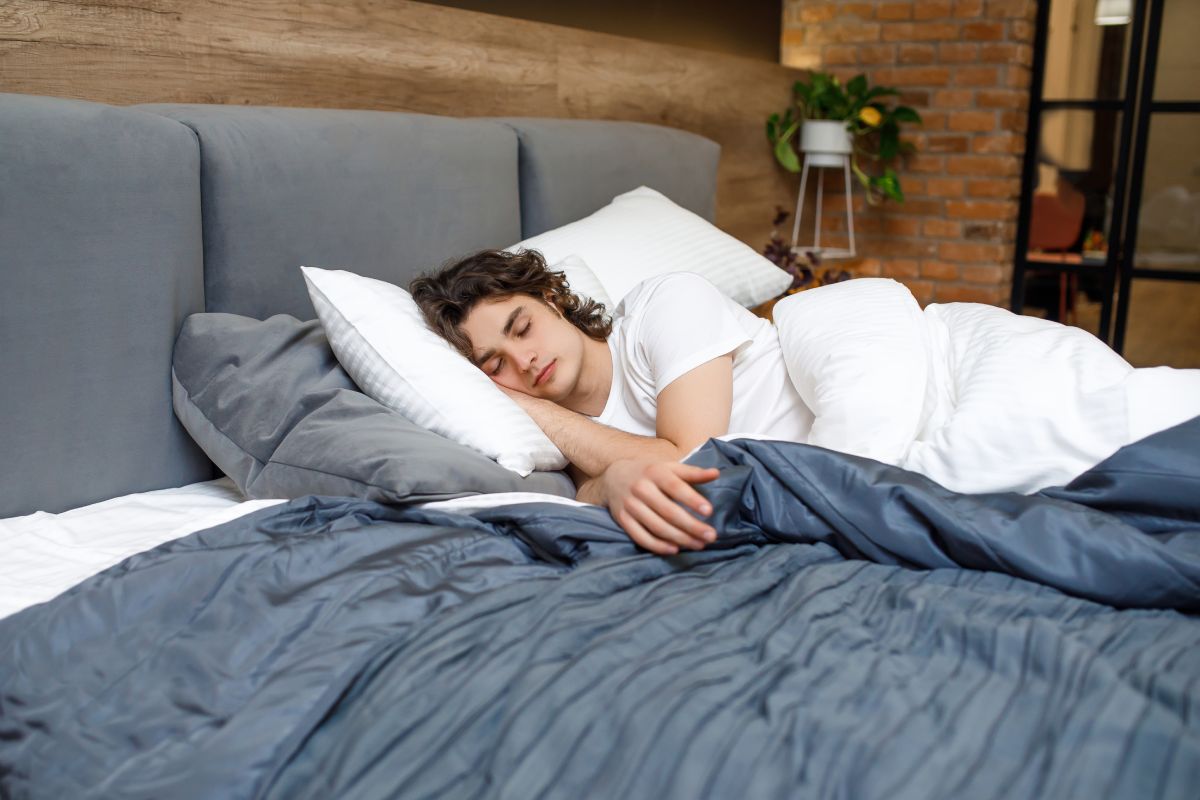
Photo Credit: Freepik.com
Unlocking Better Mental Health Through Sleep: How Good Sleep Habits can transform Well-being
Sleep is more than just a break from the day. It’s essential for our physical and mental health. You can read more about this in our last article on The Crucial Link Between Sleep and Mental Health: How Sleep deprivation Impacts your Well-being. Healing begins from the inside out and it often starts with restful sleep.
Let’s explore how adopting healthy sleep practices can support your emotional well-being.
1. Establishing a Healthy Sleep Routine:
A consistent bedtime and wake-up schedule, even on weekends, helps regulate your internal clock. Known as sleep hygiene, this habit reinforces the body’s natural rhythm.
For example: Start winding down at 9:30 pm every evening with calming activities like reading or light stretching to signal your brains its time for rest.
2. Relaxation Rituals Before Bed:
Sleep doesn’t begin the moment your head hits the pillow- it starts well before. Creating space to unwind signals your body that it’s time to rest.
For example: Replace screen time with a calming podcast or try guided meditation such as “Beditation: to ease into a restful state. Avoid blue light an hour before bed to reduce stimulation.
3. Mindfulness for a Restful Mind:
Stress and anxiety are common sleep disruptors. Practicing mindfulness can help settle your thoughts and where your mind sleeps.
For example, journal your worries before bed or make a to-do list for the next day. Reframing unhelpful thoughts with self help CBT techniques can also ease mental clutter.
4. Create a Sleep-friendly Environment:
Your surroundings play a key role in sleep quality. Cool, quiet and dark spaces are best but personal comfort is key.
For example, try Black Out curtains, keep your phone on silent or out of reach, and use white noise or soft rain sounds if the silence feels unsettling.
Don’t Force It-Let Sleep Come Naturally
Struggling to sleep? Forcing it only may add pressure.
For example, if you are tossing and turning, get up and engage in something calming in another room. Return to bed only when you feel sleepy again.
Sleep and Lifestyle: The Diet & Exercise Link
What you eat and how active you are directly impact your sleeps.
For Example: Avoid caffeine and heavy meals close to bedtime but steer clear of intense workout at least 90 minutes before sleep.
Sleep and Mental Health: A Two Way Street:
Research shows that poor sleep significantly increases the risk of Mental Health concerns. People with Insomnia are up to 17 times more likely to experience anxiety and depression. Sleep issues are linked to PTSD, eating disorders and psychosis. Yet, many studies are observational and experimental data is emerging- like the use of AI to monitor sleep more accurately and unobtrusively. These tools are revolutionizing medicine and may soon offer early detection for issues like depression or Parkinsons.
Make Sleep a Priority in your Healing Journey:
Sleep is more than rest- it’s a reflection of your emotional landscape. At ImPerfect Psychotherapy, we understand how deeply intertwined sleep and mental health are. Our Therapists offer evidence-based support to help you manage sleep disturbances and develop rather healthier routines that nurture your mind and body. If sleep is the window to brain health, what might your nights be trying to tell you?
By Urveez Kakalia and Krupa Abraham.
Reference:
- https://www.nhs.uk/every-mind-matters/mental-wellbeing-tips/how-to-fall-asleep-faster-and-sleep-better/
- https://pmc.ncbi.nlm.nih.gov/articles/PMC8651630/
- https://time.com/collection/life-reinvented/5494363/sleep-artificial-intelligence/
Further Readings:
Meyer, D., Jayawardana, M. W., Muir, S. D., Ho, D. Y. T., & Sackett, O. (2018). Promoting psychological well-being at work by reducing stress and improving sleep: mixed-methods analysis. Journal of medical Internet research, 20(10), e267.
Economides, M., Male, R., Bolton, H., & Cavanagh, K. (2023). Feasibility and preliminary efficacy of app-based audio tools to improve sleep health in working adults experiencing poor sleep: a multi-arm randomized pilot trial. Sleep, 46(7), zsad053.
Espie, C. A., Luik, A. I., Cape, J., Drake, C. L., Siriwardena, A. N., Ong, J. C., … & Kyle, S. D. (2016). Digital cognitive behavioural therapy for insomnia versus sleep hygiene education: the impact of improved sleep on functional health, quality of life and psychological well-being. Study protocol for a randomised controlled trial. Trials, 17, 1-9.
